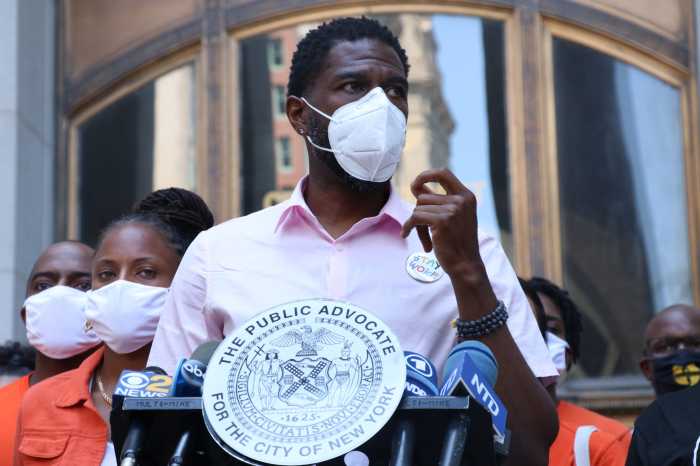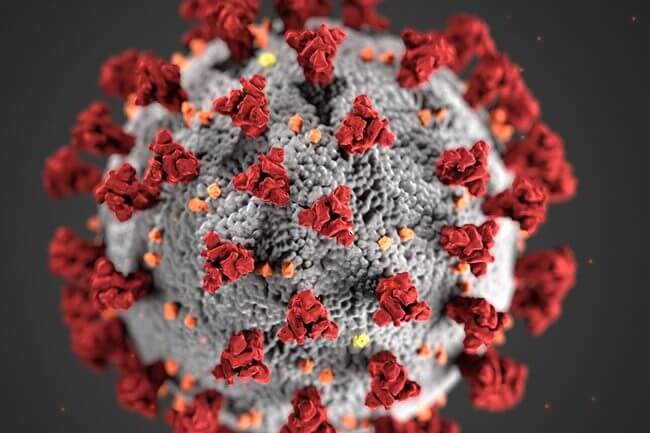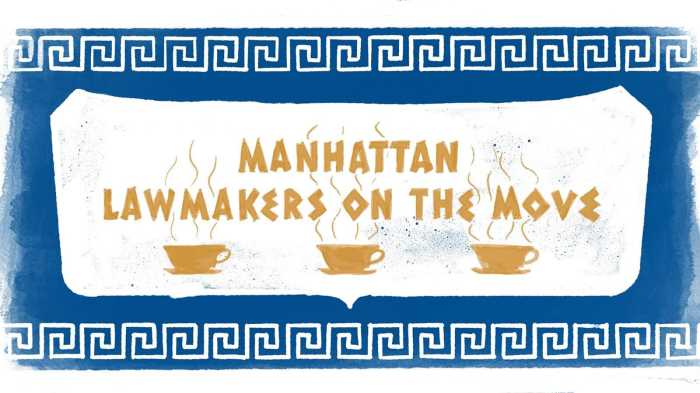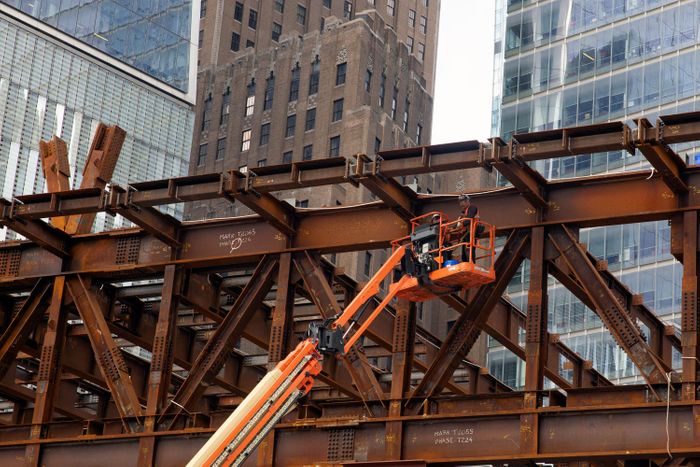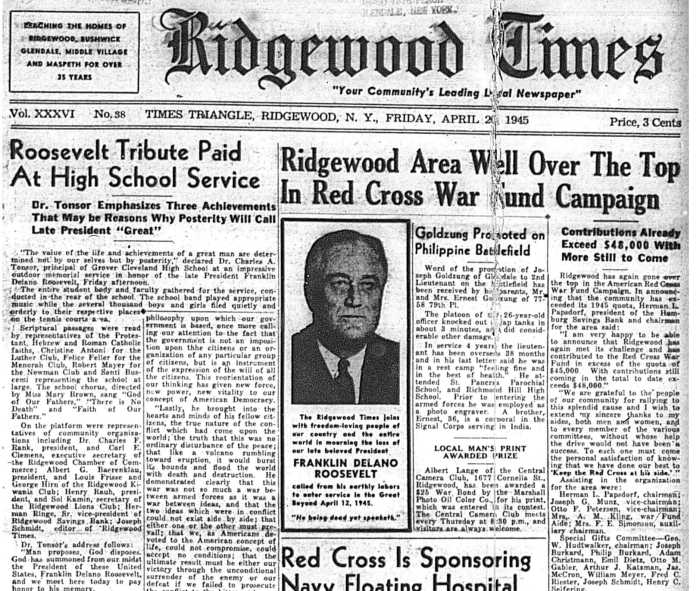“Get stuff done, get Rikers closed.”
The familiar catchphrase of Mayor Eric Adams was chanted by several elected officials and advocates for the closure of Rikers Island on Thursday, as they called on the mayor to shutter the controversial jail complex by the legally mandated 2027 deadline.
Three citywide pols — City Council Speaker Adrienne Adams, Comptroller Brad Lander and Public Advocate Jumaane Williams — demanded the jail’s on-time shutdown at a City Hall Park rally Thursday afternoon, in light of the Adams administration revealing earlier this week that one of the jails slated to replace Rikers won’t be completed until 2029.
At the rally, hosted by the criminal justice group Freedom Agenda, the speaker repeated her calls to close Rikers by Aug. 31, 2027 — a date required by the 2019 City Council law that mandates the complex be shuttered, after first making the overture at the end of her State of the City speech last week. She pointed to the large number of people held at Rikers with severe mental illness and the 19 inmates who died across the city’s jail system last year as reasons why the island must close sooner rather than later.
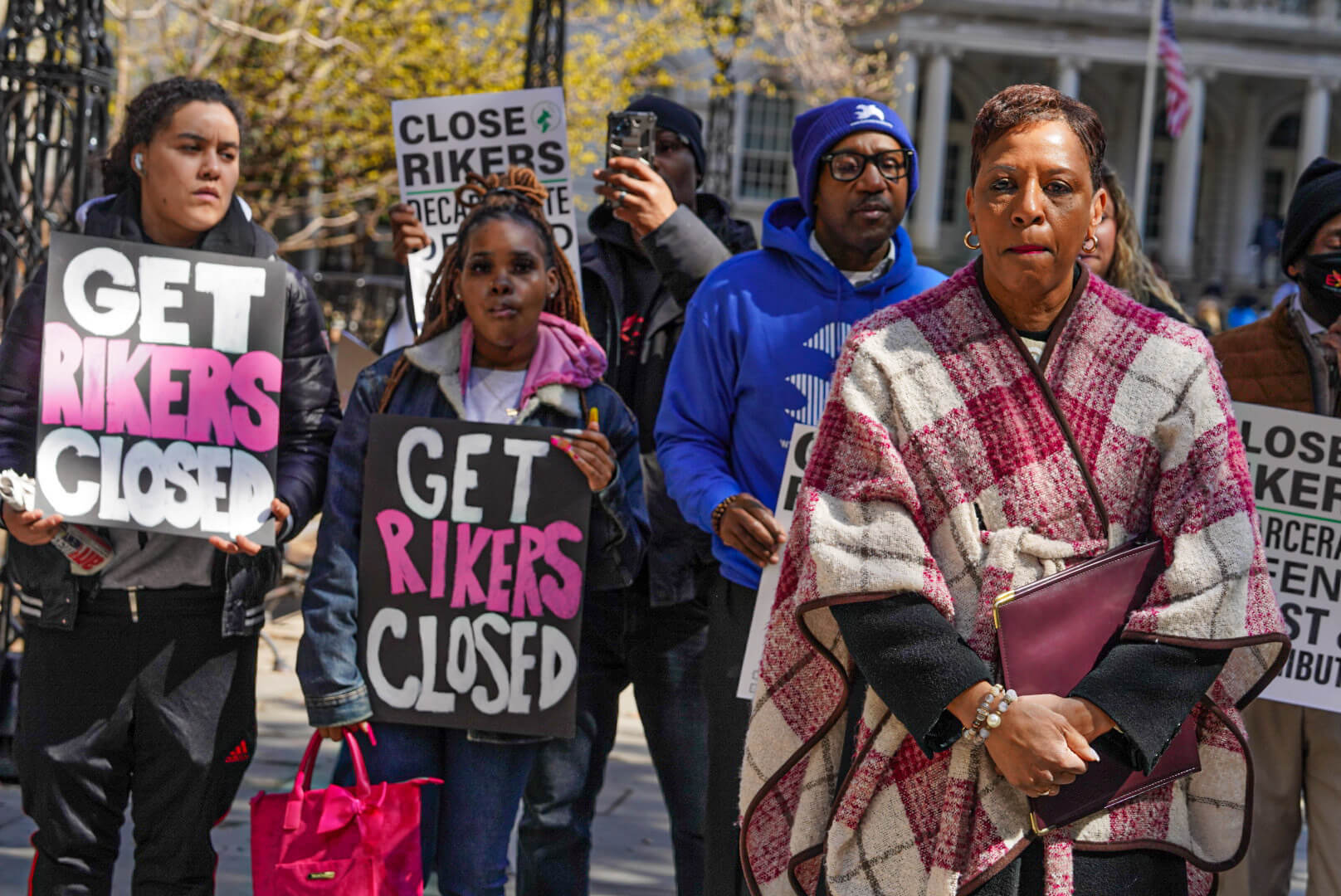
“The law is clear that the city must close Rikers and transition to borough-based jails by 2027,” Speaker Adams said. “Rikers is undermining public safety by worsening mental health conditions and leaving people worse off after being there.”
“With over half of those detained diagnosed with a mental health issue, Rikers has become more of a de facto mental health facility, which only worsens the existing challenges for people to successfully reenter our community,” she added. “Month after month, we see someone lose their life on Rikers, at levels that are nearly unprecedented, with 19 people having died in our jail system in 2022, making it the deadliest year in a decade.”
The speaker, Lander and Brooklyn Borough President Antonio Reynoso were all members of the City Council who voted in favor of the plan in 2019.
The Adams administration, Williams said, recognizes all of the issues with Rikers that he and the other pols and advocates in attendance were sounding the alarm about.
“The kicker is that the people who don’t support us agree with the same things,” Williams said. “The folks who oppose and push back on us agree with how dangerous Rikers is. They agree that you can literally die while waiting for your trial.”
“And the question is, what are you going to do about it?” he asked. “It’s not enough to agree or regurgitate the talking points, especially if you have the power to make a difference.”
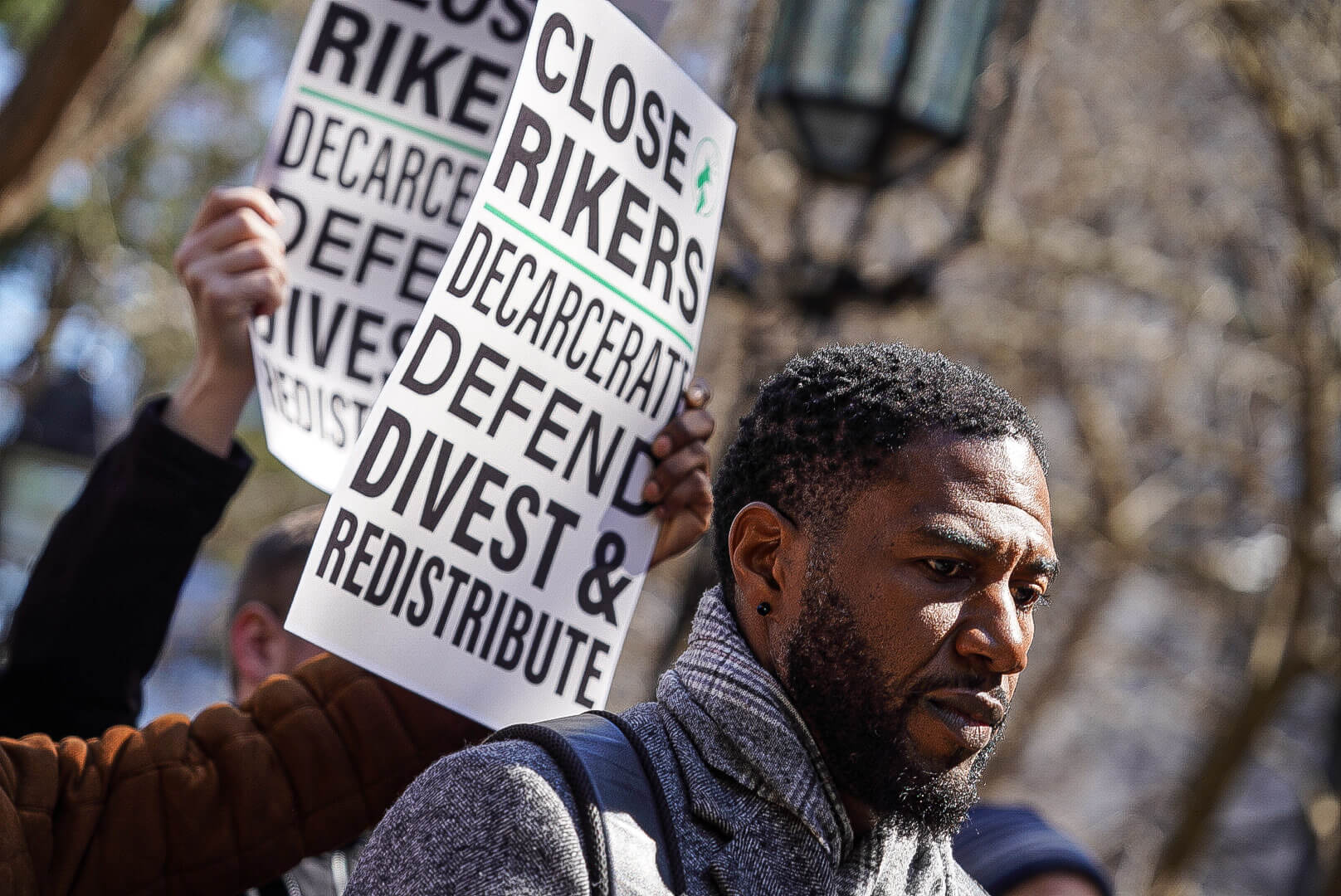
The speaker’s comments also come after the mayor has begun to openly question the 2027 closure plan in public statements, while maintaining the law is clear that Rikers must shutter by that date and his administration will follow the law.
“The inconsistent statements from the administration over the past few days have unacceptably created questions where there should be no question,” the speaker said. “Rikers must close by 2027.”
On Monday, the city Department of Design and Construction released a public notice for a proposed contract for one of the four borough-based jails set to replace the Rikers facilities after their planned closure. The contract was for the construction of a jail on the site of the current Brooklyn House of Detention, according to published reports.
But the contract, of which many of the details are still unknown as they have yet to be finalized, indicates the new Brooklyn jail wouldn’t be completed until roughly two and a half years past the 2027 deadline. The council will reportedly hold a hearing on the $2.9 billion potential deal between the city and Tutor Perini Corporation later this month.
The other three borough-based jails will be built in Chinatown, Manhattan; Mott Haven in the Bronx; and Kew Gardens in Queens. All of the new facilities combined will only be able to hold up to 3,300 detainees, far below the 15,000 that was once the maximum capacity of Rikers.
Currently the inmate population on Rikers sits between 5,500 and 6,000.
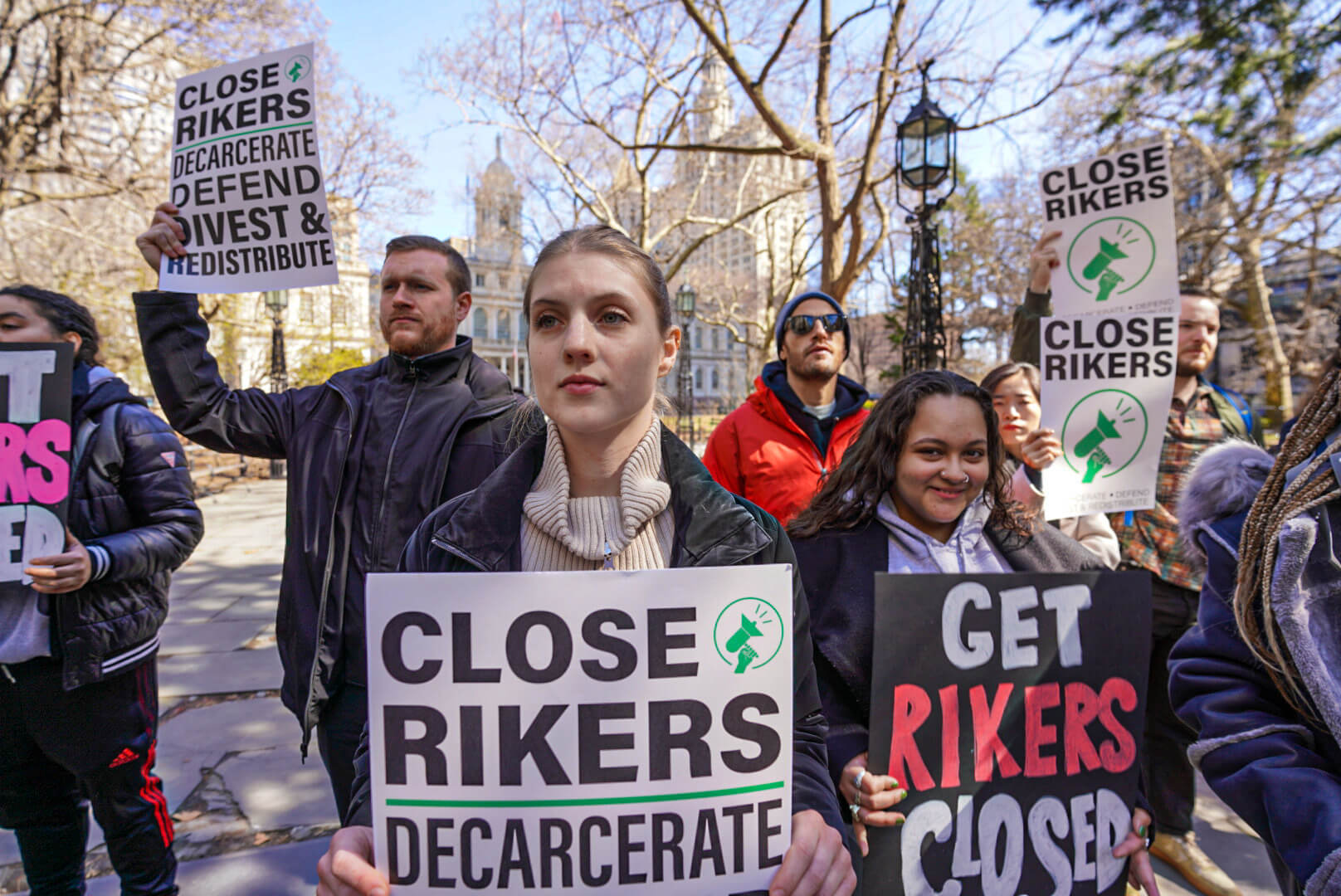
To help ensure the timely closure of the jail, the speaker said the council is going to “work with all stakeholders to help ensure the administration structures contracts to advance closure on time, fulfilling its obligation.”
The speaker also emphasized the importance of shrinking the city’s jail population through non-carceral methods such as directing those with mental health issues to treatment, expanding reentry programs that provide job opportunities and supportive housing.
According to a report from the New York Daily News, the mayor suggested on Wednesday that a late completion of the Brooklyn jail won’t impact the timeline to close Rikers, saying: just “because something is not completely finished does not mean that you can’t occupy inmates.” He also again said his administration would abide by the law, which stipulates Rikers must shutdown in four years.
When asked for a response to the mayor’s Wednesday comments, the speaker, during a separate press conference on Thursday, said she was “very happy” the mayor acknowledged Rikers had to be closed in 2027, but didn’t respond directly to his remarks that seemed to suggest inmates could “occupy” a “not completely finished” facility.
“First, I was very happy to hear the mayor acknowledge that, in his own words, the jail had to be closed by 2027 and the law was the law and that you must comply with the law,” the speaker said. “As far as how that would go down the line? It’s very difficult to say how that will go down the line. I think that that is a process that we’re going to have to continue to watch. We hope that everything would be satisfactory by the closer timeframe.”
A spokesperson for the mayor’s office did not comment on the rally.




